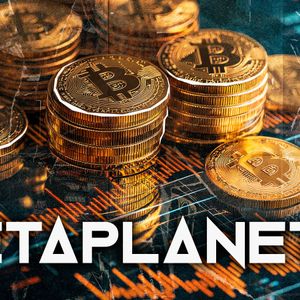Escalating Geopolitical Tensions: Analyzing the Crypto Market Impact
5 min read
BitcoinWorld Escalating Geopolitical Tensions: Analyzing the Crypto Market Impact Recent reports citing Fars News Agency via JinSe Finance indicate a potential rise in Geopolitical Tensions involving Iran and the United States in the Middle East. While this news primarily concerns international relations and security, it’s crucial for investors and enthusiasts in the digital asset space to understand how such developments can ripple through global financial markets, including cryptocurrencies. How Do Geopolitical Tensions Influence the Crypto Market? The relationship between geopolitical instability and the cryptocurrency market is complex and often debated. Historically, periods of global uncertainty have led investors to seek perceived ‘safe haven’ assets. Traditionally, gold has fulfilled this role, but in recent years, Bitcoin and other cryptocurrencies have sometimes exhibited similar behavior. The primary way Geopolitical Tensions exert a Crypto Market Impact is through their effect on investor sentiment and risk appetite. When global risks rise, investors may: Move away from riskier assets (like stocks, and sometimes, unfortunately, crypto) towards perceived safer ones. Increase demand for assets seen as outside the control of traditional financial systems, potentially benefiting decentralized cryptocurrencies like Bitcoin. React to potential economic consequences, such as changes in oil prices, inflation expectations, or central bank policies, which can indirectly affect crypto valuations. Understanding these dynamics is key to navigating the potential volatility that can arise from international conflicts. Is Bitcoin a True Bitcoin Safe Haven? The concept of Bitcoin serving as a Bitcoin Safe Haven asset during times of crisis is a hotly debated topic within the crypto community and traditional finance. Proponents argue that Bitcoin’s decentralized nature, limited supply, and independence from any single government or central bank make it an ideal store of value when traditional systems face stress. Arguments for Bitcoin as a safe haven: Decentralization: Not controlled by any single entity, making it resistant to confiscation or manipulation by governments. Global Accessibility: Can be accessed and transferred across borders, potentially useful in regions experiencing capital controls or economic instability. Limited Supply: The fixed supply of 21 million Bitcoin is often compared to precious metals like gold. Arguments against Bitcoin as a safe haven: Volatility: Bitcoin’s price can be extremely volatile, which contradicts the traditional definition of a stable safe haven asset. Correlation with Tech Stocks: At times, Bitcoin has shown correlation with risk-on tech stocks, suggesting it’s still viewed as a growth asset rather than purely defensive. Regulatory Uncertainty: The evolving regulatory landscape adds another layer of risk. Past events have shown mixed results. During some crises, Bitcoin’s price has surged, while in others, it has dropped along with broader markets. The current situation involving Iran and the US could serve as another test case for Bitcoin’s safe haven narrative. Understanding Market Volatility Amidst Middle East Tensions Increased Geopolitical Tensions , particularly in a strategically important region like the Middle East, almost invariably lead to increased Market Volatility across global financial markets. The crypto market, known for its inherent volatility, is particularly susceptible to sharp price swings in response to significant external events. Why does geopolitical news cause volatility? Uncertainty: The primary driver is uncertainty about the potential scale, duration, and economic consequences of the conflict. Investor Fear: Fear can trigger panic selling or rapid shifts in portfolio allocation. Liquidity Shifts: Large investors or institutions may move significant capital, causing price dislocations. News Cycles: Rapidly developing news can lead to knee-jerk reactions from traders. For those holding Middle East Crypto assets or operating within the region, volatility can be amplified by local factors, though the global nature of major cryptocurrencies means the impact is felt worldwide. Middle East Crypto Landscape and Regional Impact The Middle East Crypto landscape is diverse and rapidly evolving. Countries in the region have varying stances on digital assets, from outright bans to active promotion of blockchain technology and crypto adoption. Geopolitical instability can influence this landscape in several ways: Increased Adoption (Potentially): In areas facing economic instability or sanctions, there can be increased interest in using cryptocurrencies as an alternative store of value or means of transaction, though this often operates in grey areas. Regulatory Responses: Governments might tighten regulations on crypto to prevent illicit use or capital flight, or conversely, explore digital currencies as a strategic tool. Infrastructure Development: Investment in crypto and blockchain infrastructure might slow down or accelerate depending on the perceived risks and opportunities. While the news focuses on military plans, the broader economic and financial implications for the region’s growing engagement with digital assets are worth monitoring. Any escalation could influence local crypto markets and user behavior. Potential Scenarios and Crypto Market Impact Analyzing potential scenarios helps us understand the range of possible outcomes for the Crypto Market Impact . While predicting market movements is impossible, we can consider how different levels of escalation might affect digital asset prices and sentiment: Scenario 1: De-escalation or Containment If tensions ease or remain contained without direct conflict, the initial market reaction might reverse. Risk appetite could return, potentially benefiting growth assets, including some cryptocurrencies. Market volatility might decrease. Scenario 2: Limited Escalation Specific, limited incidents could cause temporary spikes in volatility. Bitcoin might see a brief rally if perceived as a safe haven, but this could be short-lived if broader market panic sets in. Altcoins, often considered riskier, might experience sharper declines. Scenario 3: Significant Escalation A major conflict would likely trigger significant global financial turmoil. Initial reaction could be a flight to safety, potentially boosting traditional assets like gold and possibly testing Bitcoin’s safe haven narrative on a larger scale. However, widespread economic disruption and fear could also lead to a sell-off across all asset classes, including crypto, as investors prioritize liquidity. Long-term Crypto Market Impact would depend on the duration and economic consequences of the conflict. Investors should remain vigilant, avoid making impulsive decisions based on headlines, and consider how potential geopolitical shifts align with their long-term investment strategy in digital assets. Conclusion Reports of Iran’s potential plans targeting U.S. military bases underscore the ever-present risk of Geopolitical Tensions impacting global markets. While the direct implications are strategic and humanitarian, the indirect effects on the Crypto Market Impact are undeniable. Whether Bitcoin truly acts as a reliable Bitcoin Safe Haven during such events remains a subject of ongoing observation, but increased Market Volatility is a likely consequence. The developing situation in the Middle East Crypto landscape adds another layer of complexity. Staying informed about global events and understanding their potential ripple effects on digital assets is crucial for navigating the unpredictable nature of both geopolitics and the cryptocurrency market. To learn more about the latest crypto market trends, explore our article on key developments shaping Bitcoin price action. This post Escalating Geopolitical Tensions: Analyzing the Crypto Market Impact first appeared on BitcoinWorld and is written by Editorial Team

Source: Bitcoin World



